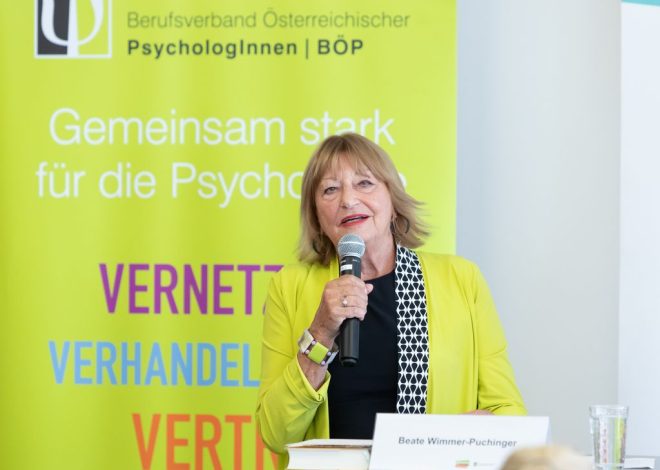
Countries in Central Asia are looking to Trieste for secrets to success in community-based reform of mental health care
In the 1970s, Trieste forever changed psychiatric care in Italy by closing its psychiatric hospital and moving to a community-based model of care that was entirely user-focused. Within a few years, the rest of the country followed suit.
The city continued this history of innovation by hosting, for the first time, from October 17 to 19, a study visit from representatives from four Central Asian countries who sought the secrets of this successful mental health reform and the conditions for its implementation in their respective settings were looking for.
At the invitation of the WHO Collaborating Center for Research and Training in Mental Health, located in the Department of Mental Health at the Azienda Sanitaria Universitaria Giuliano Isontina (ASUGI), representatives of the Ministries of Health of Kazakhstan, Kyrgyzstan, Turkmenistan and Uzbekistan, as well as specialists from the Psychiatry in these countries spent three days in the small town in northeastern Italy.
By promoting the so-called Trieste model – in which users can live as part of their community rather than just in the patient role – ASUGI has shaped community mental health services worldwide.
“Rehabilitation is the main project for users. We have to do everything we can to support them,” says Dr. Pierfranco Trincas, Head of Mental Health at ASUGI.
The study visit follows a policy dialogue held in Tashkent on April 24 and 25, 2023, where the transition to community-based care was high on the agenda.
“They treat me like one of them”
“Our job in mental health care is to both meet people’s care needs and protect their rights and responsibilities as citizens,” says Dr. Tommaso Bonavigo, who works as a psychiatrist at one of the four municipal mental health centers in Trieste.
These centers do much more than provide psychiatric crisis care: they also offer a wide range of services designed to promote recovery and resilience among users.
“A mental health crisis doesn’t just happen because the person has a mental health problem. The causes lie with those affected themselves, in their families, at work, in the neighborhood and elsewhere,” says Dr. Bonavigo.
For this reason, community mental health centers focus on identifying the factors in the people’s environment that contributed to their crises and then finding appropriate solutions for them. This may require collaboration with family members, support in finding accommodation, training or further education or the placement of a job. All of this happens in collaboration with the users themselves.
“The psychiatric professionals in Trieste are part of my family. They care about me as a person and make me feel valued,” says Elena Cerkvenič, a user. “They treat me like one of their own – there are no white coats, no hierarchy.”
“Promoting mental health is not the job of psychiatrists, nurses and educators,” says Morena Furlan, a technician in the field of psychiatric rehabilitation. “They must adopt a multi-tiered approach that involves users and all public and private entities on the society’s network. The best context for promoting mental health is the community, not a single location or service.”
The personalized project
“How is all this financed,” asked a delegate from Uzbekistan – a question that came up again and again throughout the study visit.
The question of how to fund community-based mental health reforms is a recurring one. While early proponents emphasized that community-based care was cheaper than facility care, a WHO expert survey in 2014 found that the costs were about the same. In fact, the gradual reduction of inpatient care and the reallocation of resources to community-based care – a process called “deinstitutionalization” – is more costly in the short term because both old and new models have to be financed in parallel.
Recent evidence shows that community-based services promote recovery more effectively. They are considered more cost-effective because they ultimately provide a return on investment.
Italy invests 3.5% of its total health budget in mental health care, about as much as the rest of the WHO European Region. But the Italian model allows significantly more flexibility in how this 3.5% is used. Under a system known as a ‘personalized project’, funds are allocated to individual users to support their overall recovery, not just treatment – this may mean subsidizing their housing or school costs, that in training is invested or that they are helped to find work.
“About a quarter of the municipal mental health services budget is earmarked for personalized projects,” says Sari Massiotta, head of administrative coordination and development at ASUGI.
The personalized projects are supported by a network of eleven social cooperatives – for-profit companies that work closely with ASUGI to help users earn an income. Initially, the users’ salaries are financed through their personal project budget, but later they are often employed full-time.
Social cooperatives are used to working with users and are ready to respond to their needs.
“There is always the risk of relapse,” says Stefania Grimaldi of the La Collina social cooperative, which provides administrative and cultural services to the city. “For us, this is not a dramatic situation – we decide together with the person and the municipal mental health service whether we use sick leave so that no one loses their job.”
As someone personally affected, Tamara Lipovec found this to be crucial for her own recovery: “Work is one of the most important pillars in rebuilding yourself after a crisis.”
“I never thought I would be in the system as an employee, not just as a user,” says Michele Sipala, another user.
“Our public institutions do not seek to minimize costs, but to maximize benefits and impact on the community,” says Massiotta, adding: “That is why it is so important to work with local organizations that seek to promote the well-being of the whole to improve community.”
“It’s really amazing,” said a delegate from Kazakhstan. “In the center they do everything possible with the users.”
What’s next?
At the end of the study visit there was a spirit of optimism among the delegates from the Central Asian countries.
“Mental health is societal health,” said a delegate from Uzbekistan. “It was very important that all these aspects – social, legal and gender – were taken into account.”
“We learned so much,” said a delegate from Kyrgyzstan. “The most important thing is to have a strategy. We need to get people to tell their stories and create a collection of success stories from people who have used our mental health services.”
A delegate from Turkmenistan acknowledged that although the situation in Trieste was very different from that in her country, there was room for improvement. “We consciously include different groups in the decision-making processes, but not people with mental illnesses. Now we have to start including them too.”
She added: “We want to apply everything we can – but how do we go about it?”
“I don’t think we can’t apply this in our countries; you should never say never. We can always make a difference,” said a delegate from Kazakhstan.
WHO is planning follow-up events with each of the countries to explore how the lessons learned can be applied in practice. It is also organizing further study visits to Trieste, including a visit from Ukraine in December 2023.

Ethel Purdy – Medical Blogger & Pharmacist
Bridging the world of wellness and science, Ethel Purdy is a professional voice in healthcare with a passion for sharing knowledge. At 36, she stands at the confluence of medical expertise and the written word, holding a pharmacy degree acquired under the rigorous education systems of Germany and Estonia.
Her pursuit of medicine was fueled by a desire to understand the intricacies of human health and to contribute to the community’s understanding of it. Transitioning seamlessly into the realm of blogging, Ethel has found a platform to demystify complex medical concepts for the everyday reader.
Ethel’s commitment to the world of medicine extends beyond her professional life into a personal commitment to health and wellness. Her hobbies reflect this dedication, often involving research on the latest medical advances, participating in wellness communities, and exploring the vast and varied dimensions of health.
Join Ethel as she distills her pharmaceutical knowledge into accessible wisdom, fostering an environment where science meets lifestyle and everyone is invited to learn. Whether you’re looking for insights into the latest health trends or trustworthy medical advice, Ethel’s blog is your gateway to the nexus of healthcare and daily living.



